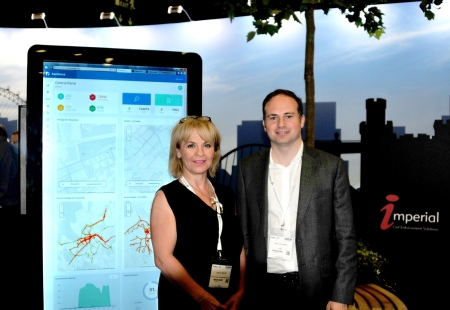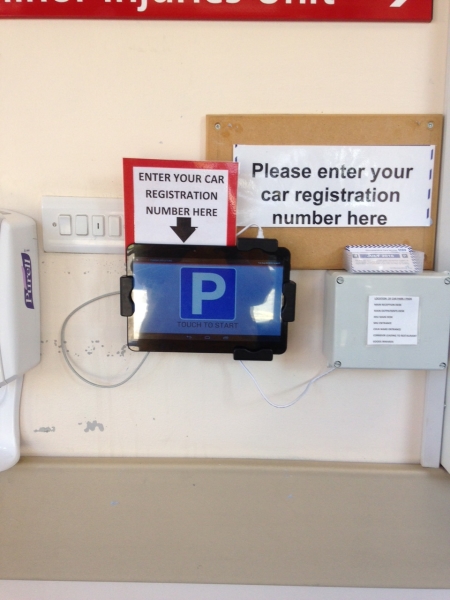The demand for accessible and secure services is conflicting with the desire for a reduction in cost and a severe lack of space to signal a step-change in the way hospitals operate on-site car parking.
The aim of providing this type of system at zero cost is to enhance the patient experience at an already-stressful time for them, but without impacting on the already-stretched budgets which many trusts are working within
This has prompted a wealth of new technologies that aim to give staff, patients and visitors maximum opportunities with minimum expense.
They are also helping hospital trusts to better allocate parking provision at the same time as keeping running costs to a minimum.
In fact, low-cost, and increasingly no-cost, solutions are being implemented much more frequently at hospitals across the UK.
Less maintenance
One such system is Park Solve’s Automatic Number Plate Recognition (ANPR) solution, which is used by a number of NHS organisations including Great Western NHS Foundation Trust.
It is operated by the company on behalf of the NHS without the need for traditional, and costly, barrier systems, which can incur hefty annual maintenance fees.
How we manage hospital car parking is rapidly changing as the demand for accessible and secure parking is on the rise
Nigel Tobin of Park Solve explains: “We work with a number of NHS trusts and it has become apparent that they need an effective solution which has a zero-cost option.”
This ability to change parking fees, or remove them altogether, is particularly important in the light of criticism over charged levied at particular patients, such as those suffering from cancer, who need to visit hospital more frequently and over a longer period of time.
“These systems work in a way that on entry and exit all car number plates are photographed,” said Tobin.
“Where trusts charge people to park on site we can provide payment machines and we can also offer our Phone & Pay cashless payments facility in order to provide more choice for patients and visitors.” Offering choice has been a key driver in the creation of the very latest parking solutions.
Keeping costs down
Tobin said: “The aim of providing this type of system at zero cost is to enhance the patient experience at an already-stressful time for them, but without impacting on the already-stretched budgets which many trusts are working within.”
We work with a number of NHS trusts and it has become apparent that they need an effective solution which has a zero-cost option
Acting on the back of this increased interest from NHS bodies; Imperial Civil Enforcement Solutions (ICES) has launched a new app called ParkFinder.
The technology is designed for smartphones and needs little investment to set up, with low operating costs, making it attractive to hospital trusts.
After downloading the app, motorists will be able to identify, book, find and pay for the most-convenient parking space immediately. This improves customer service standards while optimising occupancy.
The real-time data collected also enables parking spaces and behavioural trends of motorists to be monitored so action can be taken to improve parking management.
And Nortech Control Systems’ FeeMaster Lite, is further helping by maximising parking at the Lowe House Health Care Resource Centre in St Helens.
Delivered in partnership with Broughton Controls; it enables visitors to park in reserved spaces. When they are attended to, they are given a time and date-stamped exit ticket for the car park, helping to reduce unauthorised parking and keeping costs down.

ICES' ParkFinder app is becoming increasingly popular as it is designed for smartphones and needs little investment to set up
No tickets
Ticketless systems are increasingly attractive to hospitals in order to prevent patients and visitors from having to either predict the amount of time they will be at the hospital, or walk to pay machines.
Parkeon is using the latest technology to help trusts fulfil this ambition.
Hospital trusts need to constantly re-evaluate how they manage parking they can provide the best experience for patients, visitors and staff
Innovations include more payment options than ever before – including mobile and account-based transactions – along with a true ‘ticketless’ system via the company’s enhanced MiniPark ANPR technology.
Kent & Canterbury Hospital, William Harvey Hospital in Ashford, and the Queen Elizabeth The Queen Mother Hospital in Margate have all moved away from pay-and-display to a Parkeon Varioflex pay-on-foot system.
Creative Parking Solutions is another operator working with NHS trusts to improve services.
It recently deployed an ANPR scheme at Burnham Health Centre and has secured a contract with the Central Manchester University Hospitals NHS Foundation Trust.
And VINCI Park UK has won a contract to manage parking at Cambridge University Hospitals NHS Trust.

Park Solve’s Automatic Number Plate Recognition (ANPR) solution has been installed at the Great Western Hospital
Change is coming
Commenting on the current changes to the market, Philip Herring, managing director of parking provider, Indigo, said: “How we manage hospital car parking is rapidly changing as the demand for accessible and secure parking is on the rise.
“Hospital trusts need to constantly re-evaluate how they manage parking they can provide the best experience for patients, visitors and staff.”
Indigo provides solutions to a number of NHS organisations, includingAddenbrooke’s Hospital, which has introduced a Vertical Circulation Module system (VCM) to eliminate the issues of cross-deck movement.
This focus on customer experience is vital to the future of hospital car parking and we should continue to invest in this area
Sustainable technology, such as energy-efficient LED lighting linked to timers, and movement and daylight sensors, further ensure that parking spaces are well lit, so everyone feels safe.
Herring added: “This focus on customer experience is vital to the future of hospital car parking and we should continue to invest in this area.”




